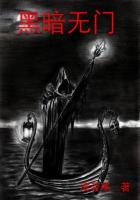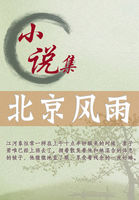Here was a church dedicated to St. Martin by Victred, King of Kent, and a house belonging to the Knights Templars; of either there are now no remains. It is the seat of a suffragan to the Archbishop of Canterbury, who, when the Archbishop is employed upon business of more consequence, manages the ordinary affairs, but does not interfere with the archiepiscopal jurisdiction. Upon a hill, or rather rock, which on its right side is almost everywhere a precipice, a very extensive castle rises to a surprising height, in size like a little city, extremely well fortified, and thick-set with towers, and seems to threaten the sea beneath. Matthew Paris calls it the door and key of England; the ordinary people have taken into their heads that it was built by Julius Caesar; it is likely it might by the Romans, from those British bricks in the chapel which they made use of in their foundations. See Camden's "Britannia."After we had dined, we took leave of England.
FRAGMENTA REGALIA
OR, OBSERVATIONS ON THE LATE QUEEN ELIZABETH, HER TIMES, ANDFAVOURITES. WRITTEN BY Sir Robert Naunton, MASTER OF THE COURT OFWARDS. A.D. 1641.
To take her in the original, she was the daughter of King Henry VIII. by Anne Boleyn, the second of six wives which he had, and one of the maids of honour to the divorced Queen, Katharine of Austria (or, as the now styled, Infanta of Spain), and from thence taken to the royal bed.
That she was of a most noble and royal extract by her father will not fall into question, for on that side was disembogued into her veins, by a confluency of blood, the very abstract of all the greatest houses in Christendom: and remarkable it is, considering that violent desertion of the Royal House of the Britons by the intrusion of the Saxons, and afterwards by the conquest of the Normans, that, through vicissitude of times, and after a discontinuance almost of a thousand years, the sceptre should fall again and be brought back into the old regal line and true current of the British blood, in the person of her renowned grandfather, King Henry VII., together with whatsoever the German, Norman, Burgundian, Castilian, and French achievements, with their intermarriages, which eight hundred years had acquired, could add of glory thereunto.
By her mother she was of no sovereign descent, yet noble and very ancient in the family of Boleyn; though some erroneously brand them with a citizen's rise or original, which was yet but of a second brother, who (as it was divine in the greatness and lustre to come to his house) was sent into the city to acquire wealth, ADAEDIFICANDAM ANTIQUAM DOMUM, unto whose achievements (for he was Lord Mayor of London) fell in, as it is averred, both the blood and inheritance of the eldest brother for want of issue males, by which accumulation the house within few descents mounted, IN CULMENHONORIS, and was suddenly dilated in the best families of England and Ireland: as Howard, Ormond, Sackville, and others.
Having thus touched, and now leaving her stirp, I come to her person, and how she came to the crown by the decease of her brother and sister.
Under Edward VI. she was his, and one of the darlings of Fortune, for, besides the consideration of blood, there was between these two princes a concurrency and sympathy of their natures and affections, together with the celestial bond (confirmative religion), which made them one; for the King never called her by any other appellation but his sweetest and dearest sister, and was scarce his own man, she being absent; which was not so between him and the Lady Mary.
Under her sister {19} she found her condition much altered; for it was resolved, and her destiny had decreed it, for to set her apprentice in the school of affliction, and to draw her through that ordeal-fire of trial, the better to mould and fashion her to rule and sovereignty: which finished, Fortune calling to mind that the time of her servitude was expired, gave up her indentures, and therewith delivered into her custody a sceptre as the reward of her patience; which was about the twenty-sixth of her age: a time in which, as for her internals grown ripe, and seasoned by adversity, in the exercise of her virtue; for, it seems, Fortune meant no more but to show her a piece of variety and changeableness of her nature, but to conduct her to her destiny, I.E., felicity.
She was of person tall, of hair and complexion fair, and therewith well favoured, but high-nosed; of limbs and features neat; and, which added to the lustre of these external graces, of a stately and majestic comportment, participating in this more of her father than of her mother, who was of an inferior alloy, plausible, or, as the French hath it, more DEBONAIRE and affable: virtues which might well suit with majesty, and which, descending as hereditary to the daughter, did render her of a sweeter temper, and endeared her more to the love and liking of the people, who gave her the name and fame of a most gracious and popular princess.
The atrocity of the father's nature was rebated in her by the mother's sweeter inclinations; for (to take, and that no more than the character out of his own mouth) HE NEVER SPARED MAN IN HISANGER, NOR WOMAN IN HIS LUST.
If we search farther into her intellectuals and abilities, the wheel-course of her government deciphers them to the admiration of posterity; for it was full of magnanimity, tempered with justice, piety, and pity, and, to speak truth, noted but with one act of stain, or taint, all her deprivations, either of life or liberty, being legal and necessitated. She was learned, her sex and time considered, beyond common belief; for letters about this time, or somewhat before, did but begin to be of esteem and in fashion, the former ages being overcast with the mists and fogs of the Roman {20}














